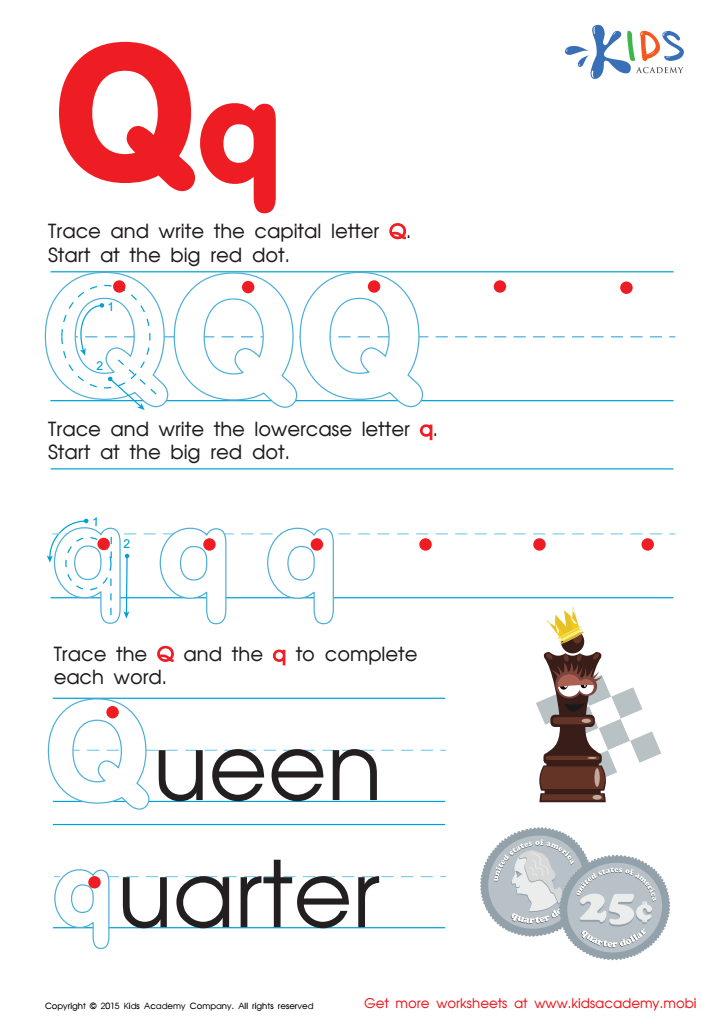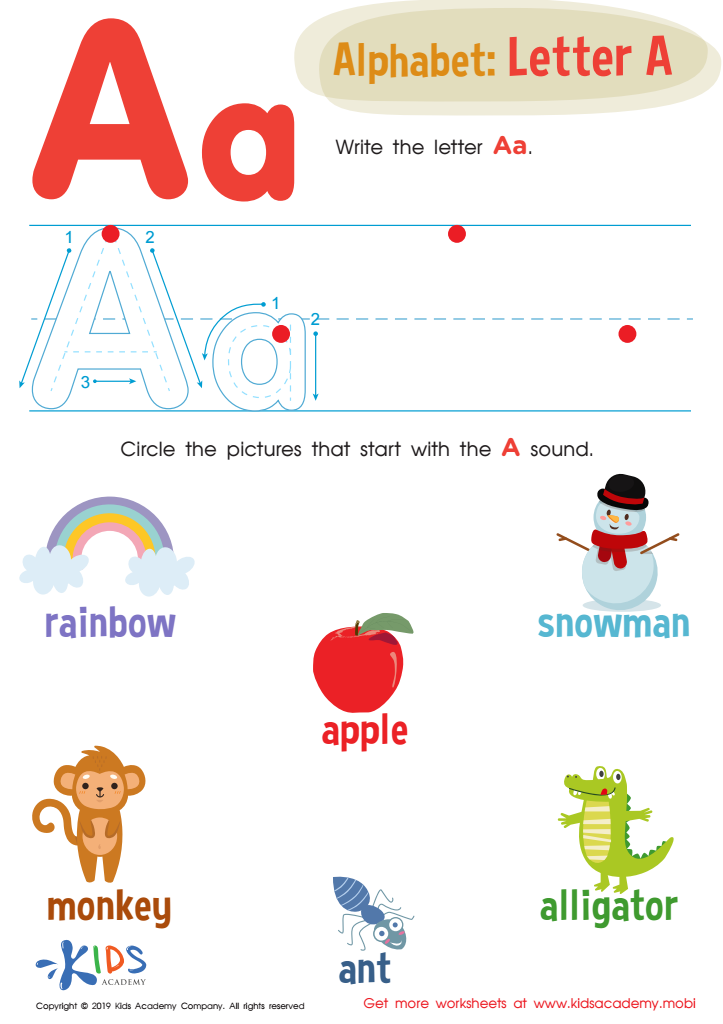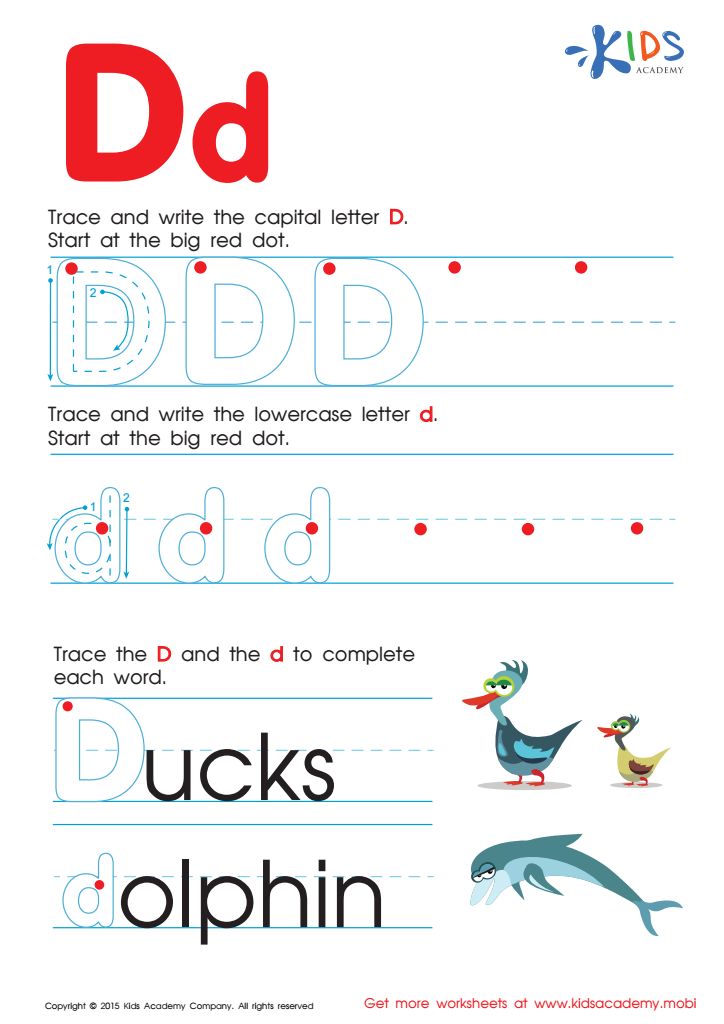Alphabet tracing Normal Worksheets for 4-Year-Olds
5 filtered results
-
From - To
Enhance your child's early literacy skills with our "Alphabet Tracing Normal Worksheets" designed specifically for 4-year-olds. These engaging worksheets from Kids Academy provide a fun and educational way for young learners to practice letter formation, recognize each letter, and develop fine motor skills. Each sheet offers ample tracing opportunities, helping children gain confidence in writing the alphabet. With colorful, playful designs and clear instructions, our worksheets transform learning time into a delightful adventure, ensuring your child master the building blocks of reading and writing. Ideal for parents and educators committed to early childhood education excellence.


Letter P Tracing Page


Letter Q Tracing Page


Letter H Tracing Page


Letter A Tracing Worksheet


Letter D Tracing Page
Alphabet tracing is a crucial foundational activity for 4-year-olds, vital for their early literacy development. This engaging activity aids in letter recognition, one of the cornerstones of reading and writing. By tracing letters, children become familiar with the shapes and sounds associated with each letter, which lays the groundwork for decoding words later on.
From a motor skills perspective, alphabet tracing enhances fine motor control and hand-eye coordination. The repetitive motion of tracing helps strengthen the small muscles in the hands and fingers, which are essential for writing. It also encourages proper pencil grip and control, which are important skills for future writing tasks.
Moreover, alphabet tracing supports cognitive development. Children learn to focus, follow instructions, and exercise their memory as they recall the shapes of different letters. This practice also boosts their confidence and ensures readiness for more advanced learning stages, making the transition to formal schooling smoother.
In addition to academic benefits, alphabet tracing can be a fun and enjoyable activity for young learners. With the use of colorful worksheets and interactive tools, children are more likely to stay engaged and motivated. Overall, investing time in alphabet tracing equips children with the essential skills they need for academic success.
 Assign to My Students
Assign to My Students















